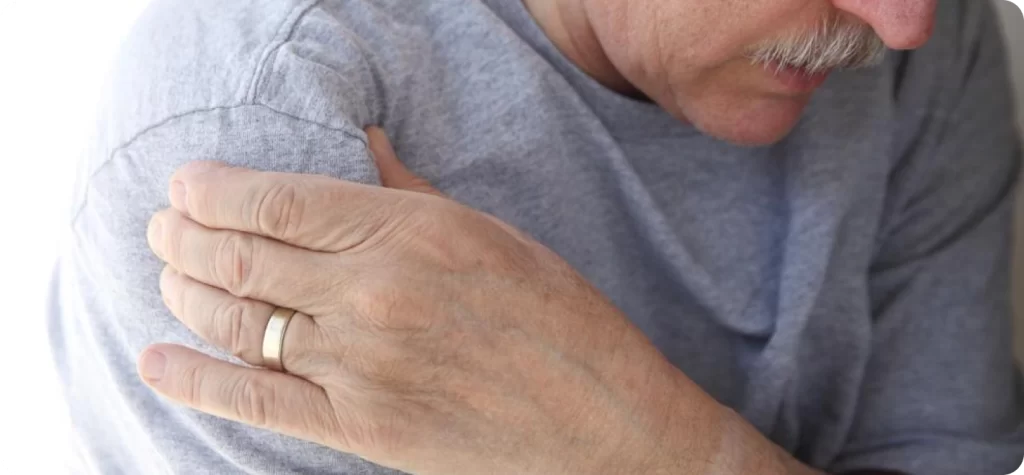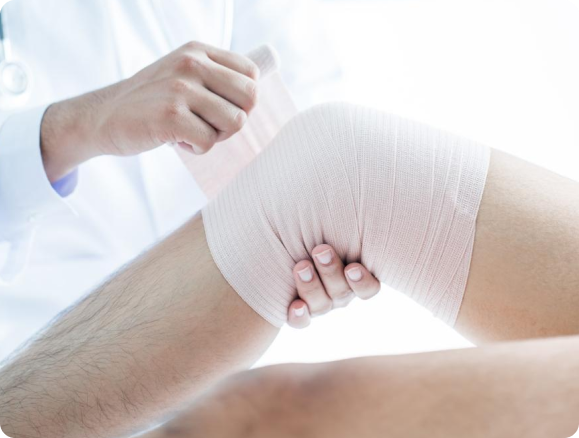You've Injured Your Rotator Cuff:
Here's What You Can Do Treat It

Your rotator cuff is a group of muscles and tendons that help stabilize your shoulder. Every time you move your shoulder, you’re moving your rotator cuff. Given that you move it a lot, it isn’t surprising to learn that rotator cuff injuries are common, with more than four million people experiencing them every year.
You can injure your rotator cuff during sports or a traumatic injury, but most rotator cuff injuries are due to the wear and tear of the tendons and joints that come with getting older. Rotator cuffs injuries are especially common with middle-aged and older people.
Rotator cuff injury risks and causes
Though a rotator cuff injury can happen to anyone, people who do sports that involve repetitive motions such as tennis, baseball, volleyball, and swimming are more prone to these types of injuries.
Also, people with occupations that require them to perform repetitive motions with their arms such as painters and carpenters are also at risk for rotator cuff injuries. For middle-aged folks, tendons wear down with age, which can lead to tears and strains.
Types of rotator cuff injuries and symptoms
- There are several different ways you can injure your rotator cuff. Overuse can lead to inflammation and pain of the tendons or the bursa, which is the fluid-filled sac that sits between connecting tendons and bones.
Tendonitis and bursitis are common rotator cuff issues, but are relatively easy to treat. When the tendon becomes overstretched, it can lead to a strain or a partial or complete tear.
Symptoms of rotator cuff wear and tear may not be apparent right away. But when symptoms do manifest, they can interfere with your daily activities and your sleep. Common symptoms include: - Stiffness
- Inflammation
- Pain when sleeping on the injured shoulder
- Limited range of motion in your shoulder
- Pain or tenderness when reaching
- Throbbing pain at night
- Shoulder weakness
- Trouble putting on your shirts and taking them off
- Trouble reaching behind your back
What you can do to treat your rotator cuff injury
Fortunately, there are many treatment options. Treatment recommendations will depend on the cause of your injury and the severity of your limitation and pain. Most people start with conservative treatments such as rest, ice, and ibuprofen. Other treatment options include:
Physical therapy
Exercises to strengthen your shoulder and the muscles around your shoulder are helpful to treat your injury and also to help prevent a recurrence after you heal. Physical therapy can also help improve your flexibility and mobility.
Injections
Steroid injections can help reduce inflammation. Although injections are only a temporary fix for your injury, they can help relieve the pain so that you can move forward with physical therapy and other exercises that can help improve your shoulder strength and reduce your pain.
Surgery
If your rotator cuff injury is a tear, surgery is the only option to affix the tendon back to your shoulder. Surgery is also an option if other treatments fail to provide relief. Dr. Justin D. Saliman performs both open and arthroscopic surgery to repair rotator cuff tears.
For more information on how to treat a rotator cuff injury, call orthopedic surgeon Dr. Saliman in Los Angeles, California, or make an appointment online.
You Might Also Enjoy...

Meniscal Repair Surgery: Everything You Need to Know
Jun 10th, 2019
A torn meniscus can be an incredibly painful and limiting condition that can lead to even bigger problems down the road with arthritis. With our innovative NovoStitch® Pro Meniscal Repair System, we can repair your meniscus correctly the first time.

